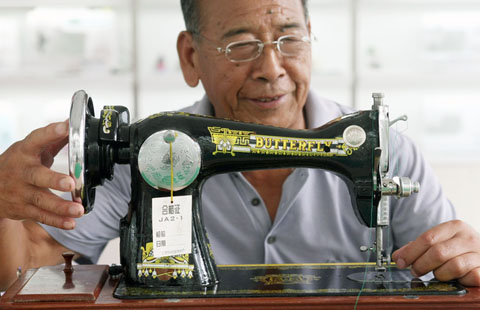Homing in on a solution
(China Daily) Updated: 2014-08-08 08:06Fitch's view is shared by many other financial institutions: that the latest round of easing could fail to revive sales, given the prevailing negative sentiment among potential buyers, while it could set off a new round of speculation unless other steps are taken to prevent that.
"Fitch also believes the recent easing policies may extend the life of uncompetitive homebuilders, which may delay and set back the progress seen in the first half of 2014 in restructuring and consolidating China's homebuilding sector," the report said.
In May, Fitch noted that less-competitive developers were being forced out of the market or into mergers with stronger ones, a trend that it said would limit the risk of oversupply and improve the long-term health of the sector.
"Of course, governments could reimpose the restrictions if speculation rises again, but that would require much more negotiation between the local and central governments," said Andy Chang, associate director at Fitch (Hong Kong) Ltd.
Compared with the loosening of curbs, Fitch and many other institutions have said that monetary easing will be much more efficient in reversing the downturn.
Tight credit conditions are widely believed to have been a chief reason for the property market downturn that started in late 2013, as buyers found it much more difficult to get bank loans and developers struggled to raise the cash to acquire land and undertake construction.
A prime example of the importance of credit came in May, when an official of the central bank urged major lenders to accelerate mortgage approvals for first-time homebuyers. Banks have been reluctant to expand their mortgage business because of the thin profit margins.
The situation changed a bit after the government injected more liquidity into the market in response to sluggish growth in the broad economy. China's broadest measure of new credit rose in June to the highest level for that month since 2009.
A study by E-house found that a narrow measure of money supply (M1) is a leading indicator of housing price changes. Previous cycles showed that M1 led home price changes by about five months.
Thus, the accelerated growth of M1 (an 8.9 percent upsurge in June from a record low of 1.2 percent in January) indicated that downward pressure on home prices may have eased.
Local governments have also moved to improve credit conditions. Chengdu in Sichuan province, Shaoxing in Zhejiang province and Baotou in the Inner Mongolia autonomous region have promised to offer subsidies to banks for mortgages for home purchasers.
Chang said that as liquidity continues to improve, banks will feel pressure to lend more to the property sector so as not to let their funds lie idle.
 |
 |
|
|
|
- Stocks fall for 3rd day, register biggest drop in six weeks
- Bank reform poses several questions, analysts say
- Top 9 antitrust cases in China
- Homing in on a solution
- WTO fails to back China's appeal over rare earths
- Customs cracks down on trade by private daigou
- Sohu takes a 6 percent stake in Keyeast
- Baidu awarded compensation from Qihoo 360













